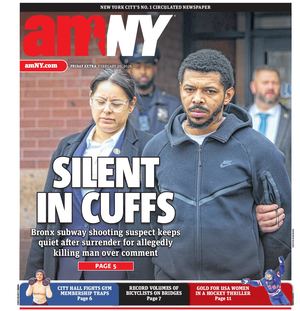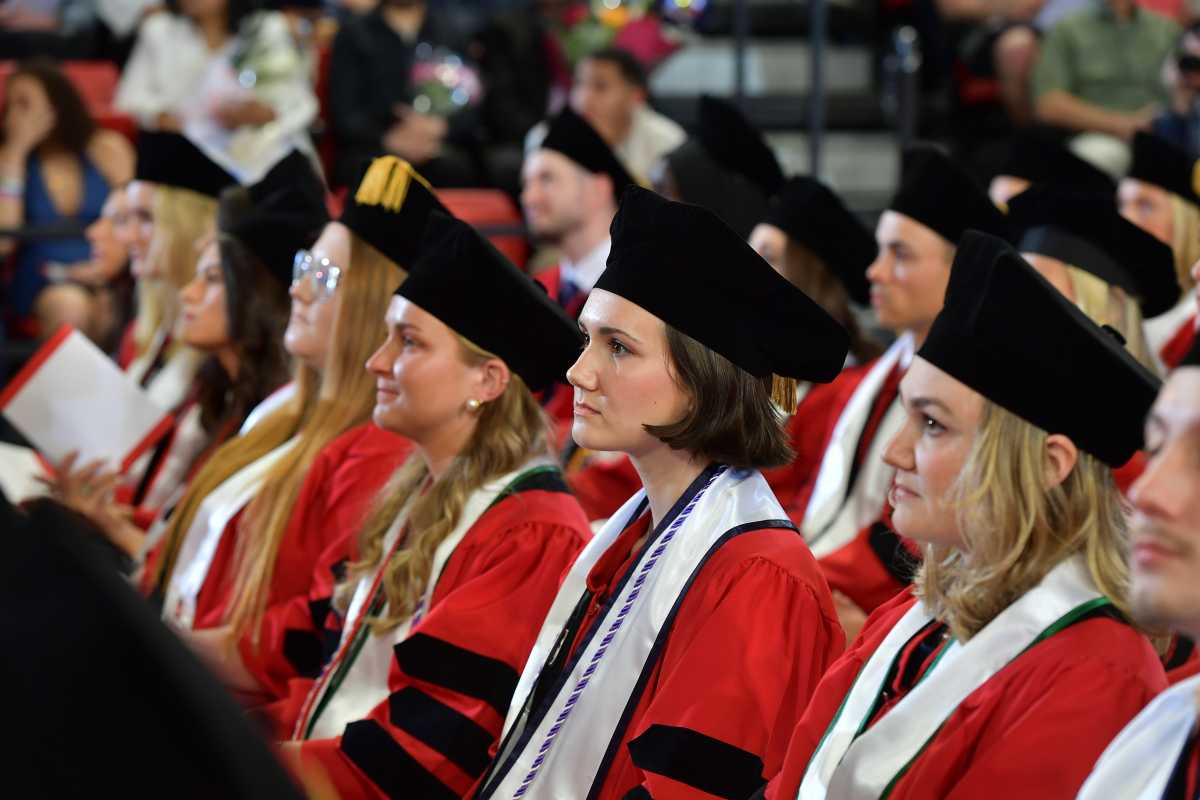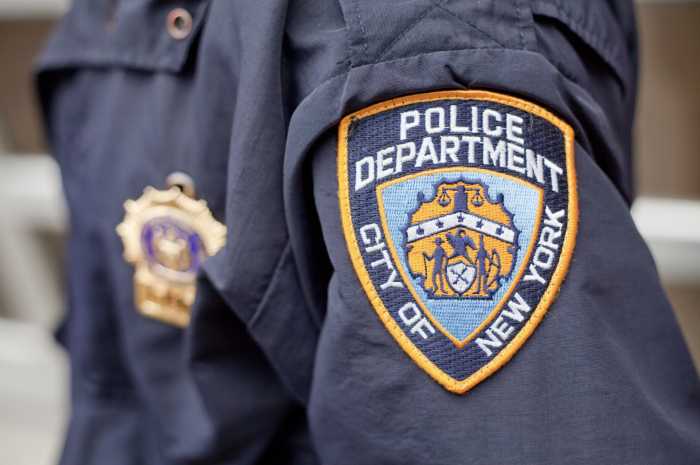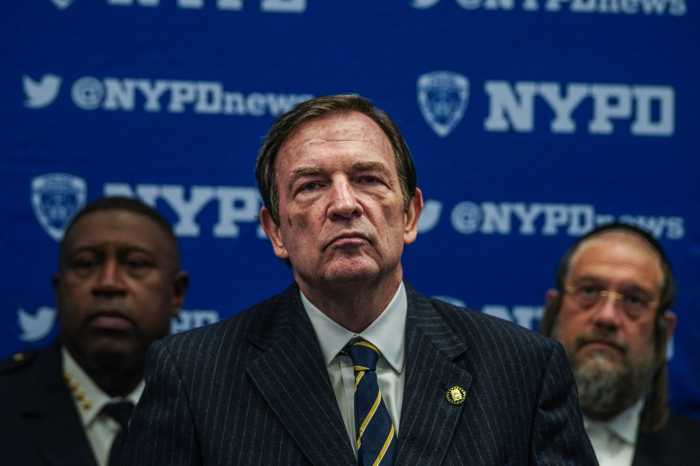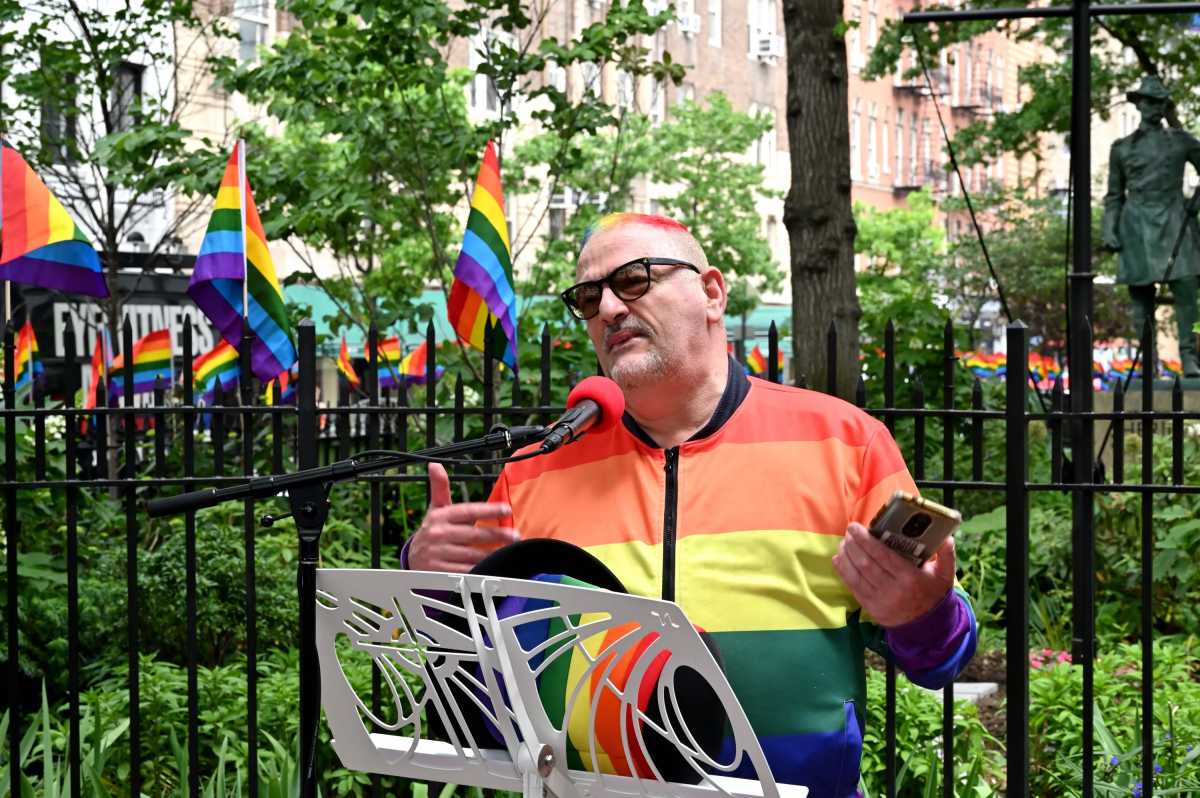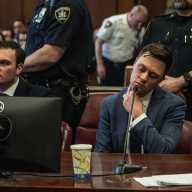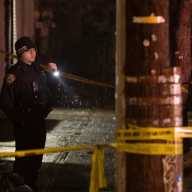A turbulent political climate has loomed over many law school commencement celebrations across New York City over the past several weeks.
But while students and graduation speakers at several ceremonies drew attention to both domestic and international political battles, the 10 events across New York City and Long Island served as a reminder that unrest creates opportunities for social impact with a law degree.
Speakers described the guardrails of democracy as being in a state of crisis and compared the current political era while law students at several schools organized and joined pro-Palestine demonstrations.
At the Brooklyn Law School commencement ceremony, New York Chief Judge Rowan D. Wilson linked today’s challenges to the corruption and inequality of the Gilded Age, which he reminded students, led to the Progressive Era, coinciding with when Brooklyn Law School was founded.
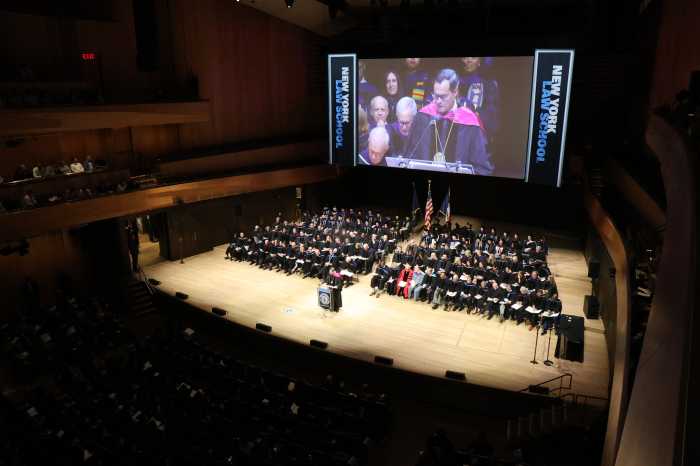
Wilson described the Gilded Age “as a period of gross materialism and blatant political corruption in the United States,” but scholars at the law school went on to develop legal innovations like workers’ compensation, antitrust, environmental protections and voting rights laws along with laws protecting the rights of workers to unionize.
“Look around,” Wilson said. “You are lucky to be graduating from Brooklyn Law School right now because right now there is so much work to be done to bring about a more inclusive, harmonious and prosperous nation. You have been given the tools and opportunities to do that work and carry on the long-standing tradition of commitment to the public good on which… our law school was founded.”
At Columbia Law School, former Montana Governor Steve Bullock, who came into the national spotlight when he won election in 2012 as a Democrat amid a Republican-dominated state government, began his speech with some barbs at the university’s administration over its capitulation to the Trump administration when it changed its rules for campus protest in response to threats to withhold $400 million.
Bullock told the graduating class that conversations over the substance of his speech started out “rocky” with the dean and class leaders instructing him to “keep it light.”
“Did I mention that I accepted your invitation 11 days before the Trump administration threatened Columbia with $400 million of contract cancellations, and 24 days before the university folded like a cheap suit to those demands?” Bullock said as students erupted in applause.
Bullock went on to encourage the graduates to be open to adjustments in their professional arc, to use their degree for good and to consider becoming a public servant.
“You’re uniquely qualified to confront the brokenness head-on and lead its repair and to incorporate into your plans not just individual success but societal improvement,” Bullock said.
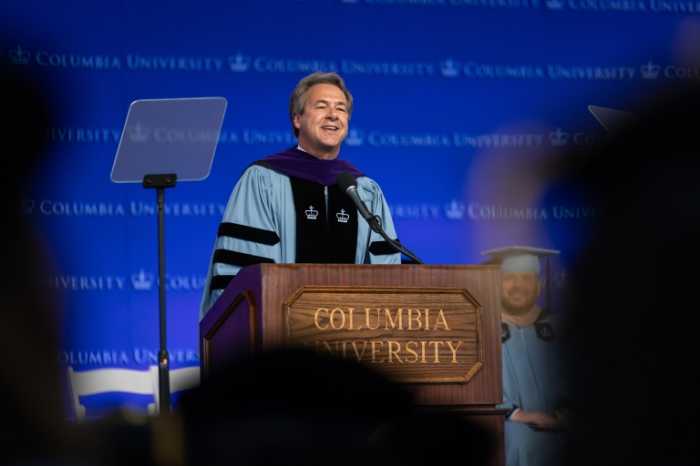
Meanwhile at CUNY, a group of dozens of law school graduates reportedly walked out of their graduation ceremony in a form of pro-Palestinian protest.
According to the student group NYU Law Student for Justice in Palestine, dozens of NYU law students also demonstrated at their graduation ceremony on May 20.
Other graduation ceremonies, at Pace University and St. John’s University, made more oblique reference to a “changing world” and the need for leadership without commenting directly on social challenges.
At St. John’s University alumnus James Pitaro, the chairman of ESPN, reiterated the importance of giving back and serving the greater good, and spoke about working toward his goal of joining ESPN after Disney CEO Bob Iger hired him.
“I’ve learned that careers are a marathon, not a sprint, and if you do the right things consistently, the future you want is more likely to happen,” he said.
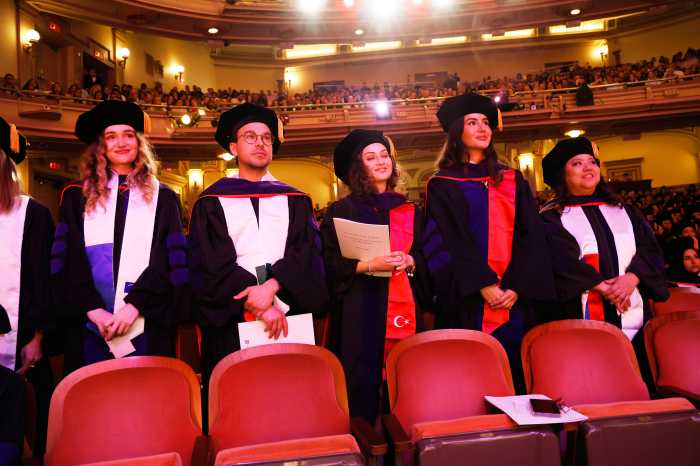
AmNY Law has compiled a list of excerpts from law school commencement speeches in and around New York City.
New York Chief Judge Rowan D. Wilson spoke at Brooklyn Law School’s commencement on May 19:
“125 years ago Brooklyn Law School’s graduates and other newly minted lawyers developed innovations such as the workers compensation laws, antitrust laws, environmental protection laws, laws enfranchising women and protecting voting rights, product liability laws, laws regulating the quality of food and drugs and laws establishing and protecting the rights of workers to unionize. Those solutions were addressed to the new problems of yesteryear. Your challenge is to invent the new doctrines, approaches, laws and systems that will address the problems of tomorrow.”
U.S. Court of Appeals for the Second Circuit Judge Denny Chin spoke at CUNY School of Law’s commencement on May 22:
Chin attributed his career path to his grandfather, who immigrated from China under exclusionary laws and worked as a waiter in Manhattan’s Chinatown before becoming a U.S. citizen in 1947 in the courthouse where Judge Chin now serves.
“Had he not overcome so many barriers, I would not be here today,” Chin said. “I, the son of a seamstress and a Chinese cook, the grandson of a Chinese waiter, became a federal judge.”
Chin urged graduates to consider their roots in charting a path forward. “Don’t forget about those who came before us, those who need our help now, and those who will need us in the future. You now have the ability to help make things better. So go forth and do good.”
Former Montana Governor Steve Bullock spoke at Columbia University Law School’s commencement on May 18:
“We are living through the most turbulent and broken period in my lifetime, a crisis of economic opportunity that is decades in the making, a crisis or subversion of the guardrails of our democracy, and what it means to share values in a community, a country, and in our world. There are pillars that make this country unique: economic opportunity, participation in our government, the rule of law, free and fair elections, an uncensored and trusted media, academic freedom, a sense of community and respect for neighbors,” he said. “We have a responsibility to support and respect those pillars, we have a responsibility to support and defend them.”
U.S. Court of Appeals for the Second Circuit Judge Maria Araújo Kahn spoke at the Fordham Law School commencement on May 19:
“I propose that the stewardship of liberty which is at the heart of our profession is guided and influenced by our ability to listen with awareness to understand the mind of others. You must first listen with the purpose to truly understand others’ perspectives. This requires inner strength and courage to open our minds to other people’s ideas. It takes honest self-awareness and humility to admit that our own ideas might be wrong and ultimately to be open to change. Remember that the law isn’t just about knowing the rules, it’s about understanding people. The best attorneys aren’t just brilliant legal minds; they have empathy and recognize that behind every case is a real person or persons who will be affected by the outcome of the case.”
New York Chief Judge Rowan D. Wilson spoke at Hofstra’s Maurice A. Deane School of Law on May 19:
Wilson emphasized how fundamental Hofstra Law graduates’ knowledge of the rule of law will be to democracy. He encouraged the students to “take what you learned in law school, and what you will learn over the course of your legal practice, and infuse it into society.”
Senior Vice President and Group General Counsel of the World Bank Christopher Stephens spoke at New York Law School’s commencement on May 19:
Stephens addressed the honor of being a lawyer, the cultivation of one’s values and the importance of critical thinking. “Your values––the guiding standards, principles, and beliefs that govern the way you conduct yourself, interact with others, and handle the responsibility bestowed upon you today––will ultimately determine your success. The only opinion of your success that will matter in the long run is your own.”
FDNY Commissioner Robert S. Tucker spoke at Pace University Law School’s Commencement on May 20:
“Leadership in law, just like in firefighting, is often about being calm in the storm. It’s about showing up when things are tough. Taking responsibility when the stakes are high and putting the needs of others before your own. Whether you end up in a courtroom or in corporate law or in public service, the same principles apply. Your duty is to lead with integrity, to act in the service of justice and to stand firm in the face of adversity. And you will do so over and over in your career, because you have chosen a career that empowers you to fight for others, to protect peace and to defend liberty.”
James Pitaro, chairman of ESPN, spoke at the St. John’s University School of Law Commencement on May 18:
“The world is changing so rapidly and we need you. We need your creative thinking and fresh points of view and perspectives. You’re stepping into a world that needs your dedication to justice more than ever,” Pitaro said. “I have no doubt you will rise to the occasion.”
